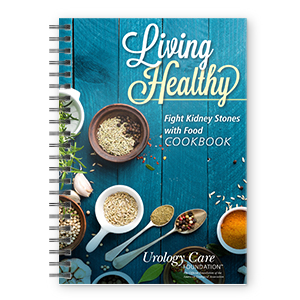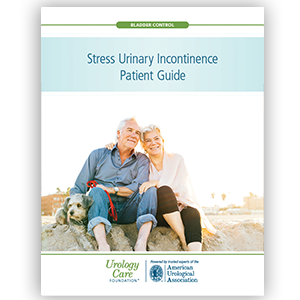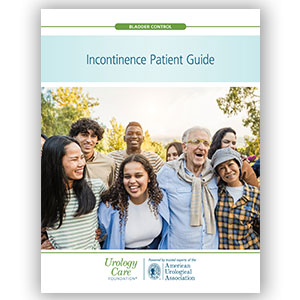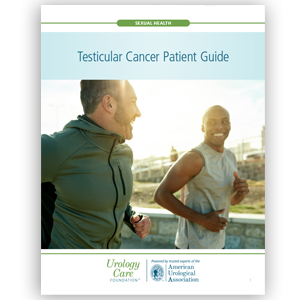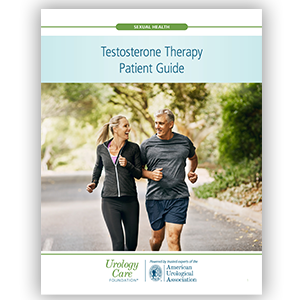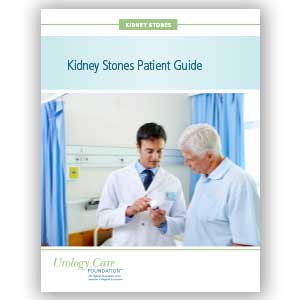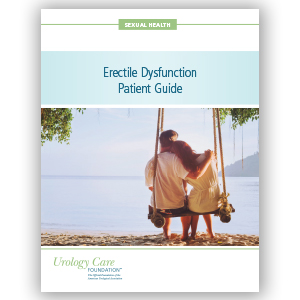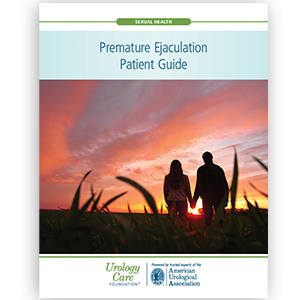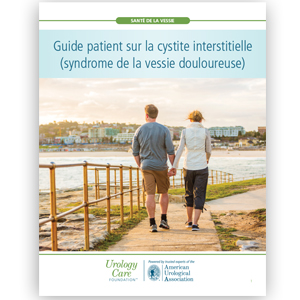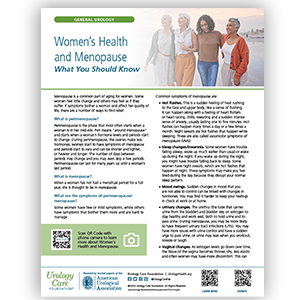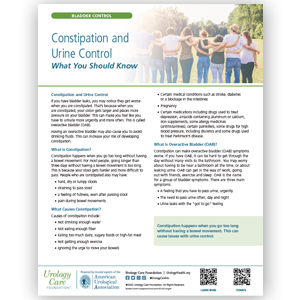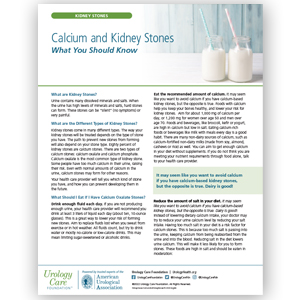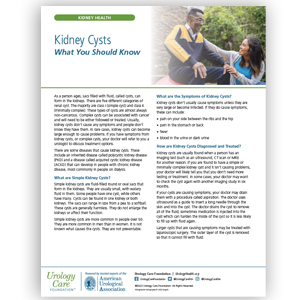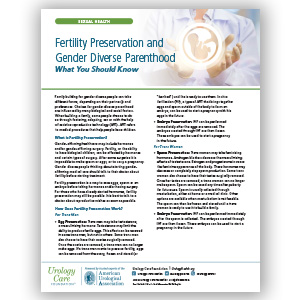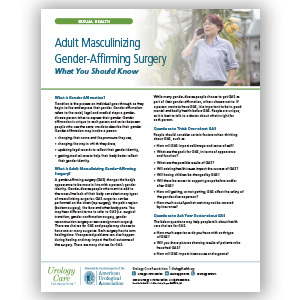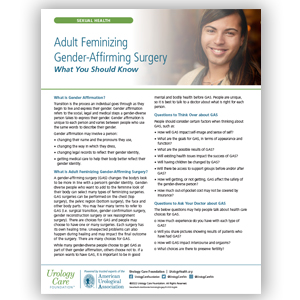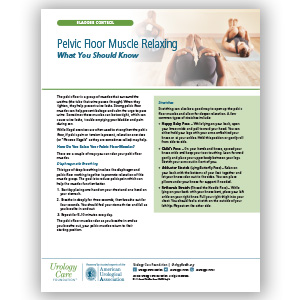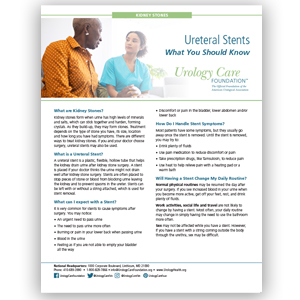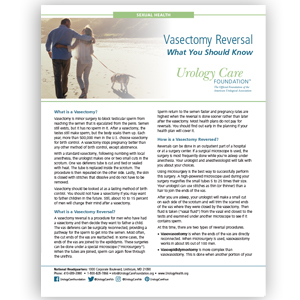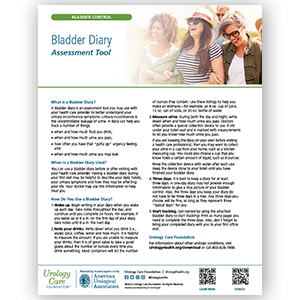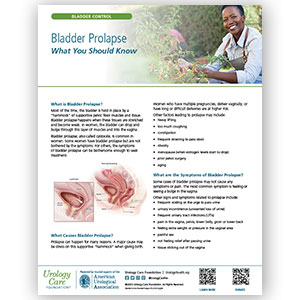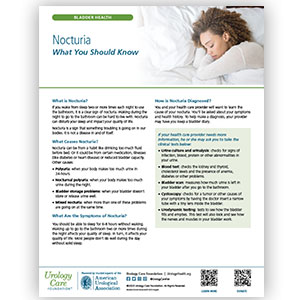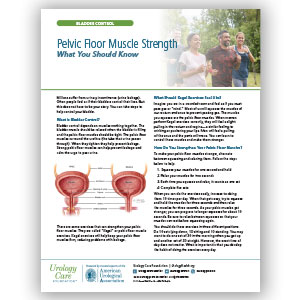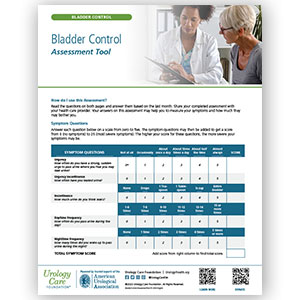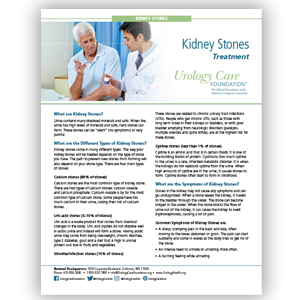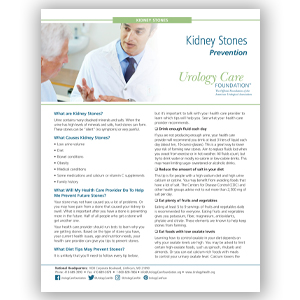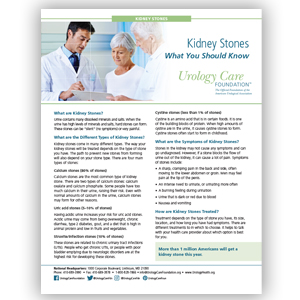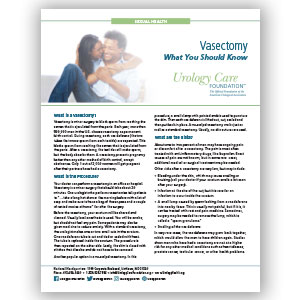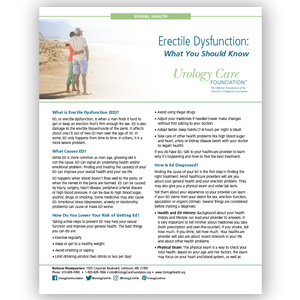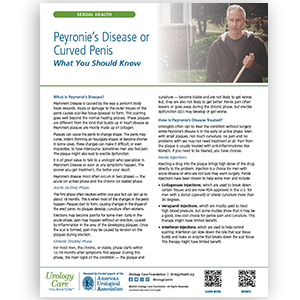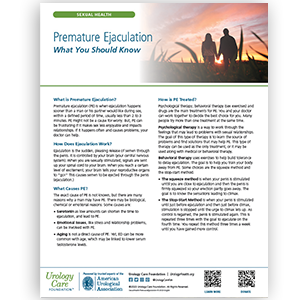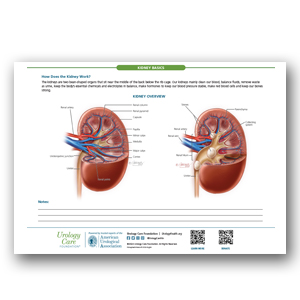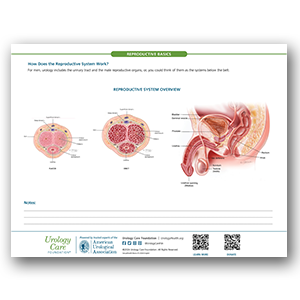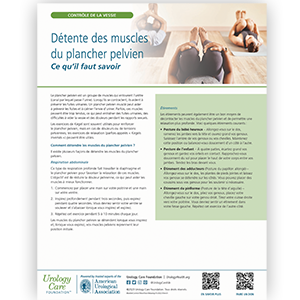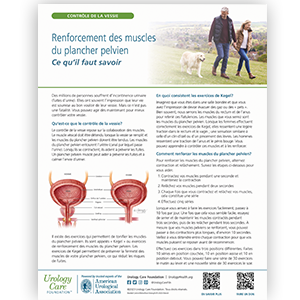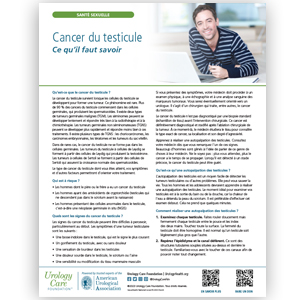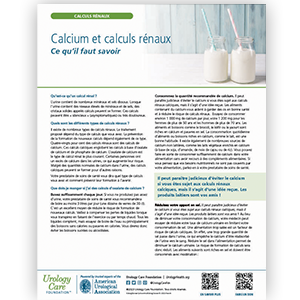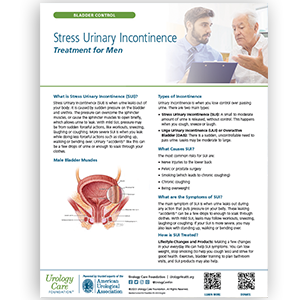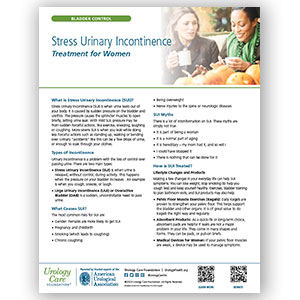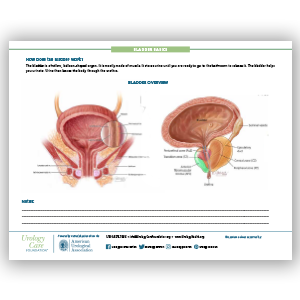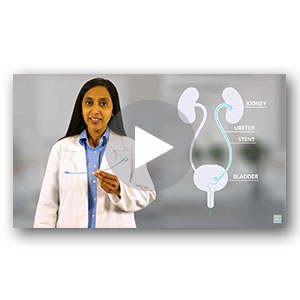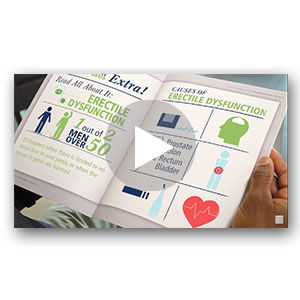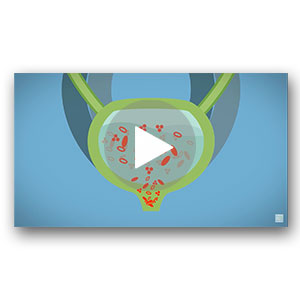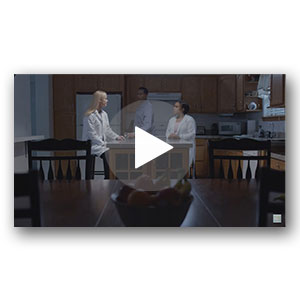Living Healthy: Fight Kidney Stones with Food Cookbook
An educational recipe book designed to help prevent kidney stones with nutrition and diet.… more
Stress Urinary Incontinence (SUI)
Download this patient resource on Stress Urinary Incontinence (SUI).… more
Testicular Cancer Patient Guide
Detailed guide to include a patient story, symptoms, diagnosis and treatment for men as well as a section on children with testicular cancer.… more
Guide patient sur la cystite interstitielle (syndrome de la vessie douloureuse)
La cystite interstitielle (CI), ou syndrome de la vessie douloureuse (SVD), est un problème de douleur vésicale chronique. Cela peut évoquer une infection de la vessie ou infection urinaire, mais ce n’en est pas une. Il s’agit d’une sensation d’inconfort et de pression dans la région de la vessie qui dure six semaines ou plus, sans infection ni autre cause évidente. (Patient Guide to Interstitial Cystitis (Painful Bladder Syndrome))… more
Women’s Health and Menopause – What You Should Know Fact Sheet
Learn about women’s health during perimenopause and menopause, symptoms and treatment options. … more
Constipation and Urine Control - What You Should Know Fact Sheet
This fact sheet outlines what to know about constipation and urine control. Constipation happens when you go too long without having a bowel movement & this can cause issues with urine control. … more
Calcium and Kidney Stones - What You Should Know Fact Sheet
There are two types of calcium stones: calcium oxalate and calcium phosphate. This fact sheet outlines what you should know about calcium and kidney stones.… more
Kidney Cysts - What You Should Know Fact Sheet
As a person ages, sacs filled with fluid, called cysts, can form in the kidneys. This fact sheet outlines what you should know about kidney cysts.… more
Adult Gender: What You Should Know
Learn about adult gender, gender affirmation and terms around gender.… more
Fertility Preservation and Gender Diverse Parenthood: What You Should Know
Learn about fertility preservation for gender diverse adults and frequently asked questions.… more
Adult Sexuality and Gender Diversity: What You Should Know
Learn about adult sexuality and gender diversity, sexual orientation, gender dysphoria and medical choices for gender diverse adults.… more
Adult Masculinizing Gender-Affirming Surgery: What You Should Know
Learn about gender affirmation, adult masculinizing gender-affirming surgery and questions to ask your doctor.… more
Adult Feminizing Gender-Affirming Surgery: What You Should Know
Learn about gender affirmation, adult feminizing gender-affirming surgery and questions to ask your doctor.… more
Pelvic Floor Muscle Relaxing: What You Should Know
Strong pelvic floor muscles can help prevent leakage and calm the urge to pass urine. Sometimes these muscles can be too tight, which can cause urine leaks, trouble emptying your bladder and pain during sex.… more
Ureteral Stents What You Should Know
A ureteral stent is a plastic, flexible tube that helps the kidney drain urine after kidney stone surgery. Learn about how they feel, how they are removed and when to call a doctor if you feel concerned. … more
Vasectomy Reversal
Download this fact sheet with information about vasectomy reversal. Vasectomy reversal is a procedure for men who have had a vasectomy and then decide they want to father a child.… more
Bladder Diary Assessment Tool
Use this bladder diary assessment tool and share the results with your healthcare provider to get a better understanding of your urinary incontinence symptoms. … more
Bladder Prolapse - What You Should Know
An overview of bladder prolapse causes, symptoms, diagnosis and treatment options.… more
Varicoceles - What You Should Know
Designed for teen boys and men to explain this condition, causes, treatments and address frequently asked questions.… more
Pelvic Floor Muscle Strength: What You Should Know
Download this fact sheet on how to perform Kegel exercises.… more
Overactive Bladder Assessment Tool
An assessment tool that allows patient to score symptoms and illustrates how they may be affecting their quality of life.… more
Overactive Bladder Diary
This Overactive Bladder Diary may help to record liquid intake, how often urine is passed and urine leakage to help you talk with your health care team.… more
Bladder Control Assessment Tool
This Bladder Control assessment tool may help to measure symptoms and quality of life related to passing urine. … more
Kidney Basics
The basics about kidney function, kidney stones and kidney cancer with notes section to help patients and health care teams.… more
Reproductive Basics
The basics about reproductive function in men as well as penile and testicular cancer with notes section to help patients and health care teams. … more
Détente des muscles du plancher pelvien: Ce qu’il faut savoir
Un plancher pelvien musclé peut aider à prévenir les fuites et à calmer l’envie d’uriner. Parfois, ces muscles peuvent être trop tendus, ce qui peut entraîner des fuites urinaires, des difficultés à vider la vessie et des douleurs pendant les rapports sexuels. (Pelvic Floor Muscle Relaxing – What You Should Know Fact Sheet)… more
Renforcement des muscles du plancher pelvien: Ce qu’il faut savoir
Des millions de personnes souffrent d’incontinence urinaire (fuites d’urine). Elles ont souvent l’impression que leur vie est soumise au bon vouloir de leur vessie. Mais ce n’est pas une fatalité. Vous pouvez agir dès maintenant pour mieux contrôler votre vessie. (Pelvic Floor Muscle Strength – What You Should Know Fact Sheet)… more
Cancer du testicule: Ce qu’il faut savoir
Le cancer du testicule survient lorsque les cellules du testicule se développent pour former une tumeur. Ce phénomène est rare. Plus de 90 % des cancers du testicule commencent dans les cellules germinales, qui produisent les spermatozoïdes. (Testicular Cancer – What You Should Know Fact Sheet)… more
Calcium et calculs rénaux: Ce qu’il faut savoir
L’urine contient de nombreux minéraux et sels dissous. Lorsque l’urine contient des niveaux élevés de minéraux et de sels, des cristaux solides appelés calculs peuvent se former. Ces calculs peuvent être « silencieux » (asymptomatiques) ou très douloureux. (Calcium and Kidney Stones – What You Should Know Fact Sheet)… more
Bladder Basics
The basics about bladder function and bladder cancer with notes section to help patients and health care teams. … more
Ureteral Stents: What You Need to Know
If you have a kidney stone, treatment options vary. If you and your doctor choose surgery as treatment for your stone, a ureteral stent may be used.… more




